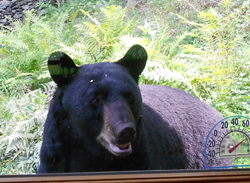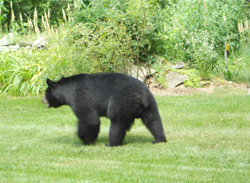Tell us the story behind the story. How did PRINCES OF NEW YORK come to be?
There are at least three overlapping answers: 1, Blame it on the Amherst prof; 2, Blame it on the literary quality of the fifteen or so "school novels" that have been published in the last twenty years; 3, Blame it on the Jewish Bride.
And there is the real reason in number 4 below.
1. Professor Allen Guttmann (whom I did not know at the time) reviewed my award-winning cultural history of college football and finished with, "Lester tells the stories . . . with the skill of a mature historian (or is he a budding novelist?)." Well, although I had never knowingly written fiction as an historian, I had come under the influence of Saul Bellow and Richard Stern at the University of Chicago, and considered novelists as the only contemporary form of demi-gods. And then, too, I was heartily sick to death of foot-notes—could I do without them?
2. The fiction that purportedly addresses private schools has been poor or mediocre, and has seldom been authentic to those of us who have lived and taught in those schools. Marginal writers and greedy agents and editors were prompted to produce spicy dross about the imagined privileged and powerful. I joined many other teachers and school heads who recognized the paucity of good school novels, and that was sufficient motiva-tion for me to attempt to put it right.
3. I have loved the revolutionary painting by Rembrandt since I first saw it in my late teens. At that time, living in the Netherlands, I made weekly pilgrimages to stand and gawk at the picture that van Gogh pronounced the finest when he was a young man. I didn't know about his judgment at the time; I only knew that it moved me, every time. Hence, I've always thought it worthy of a novel. I have given "The Jewish Bride" only a few brief passages and one description. But then, I dare not attempt more; I am not worthy of such a timeless and universal work.
4. Then, there is simply the desire to write about why it is so difficult for humans to be good. And what we can do about that predicament.
What was the most challenging aspect of writing PRINCES OF NEW YORK?
Everything. I had never had a creative writing course or workshop; and I possessed an expository essay and history monograph frame of mind for sixty years. In today's parlance, I was fictionally challenged.
It was renowned editor Dick Seaver (a favorite New York school trustee) who both encouraged and warned me about writing a novel. "We could use a good New York school novel. But your background as an academic historian is likely to be a liability. You guys like to pursue a story A to Z, based on cause and effect; but most people and novelists don't think that way." For the past fourteen years I've tried to remember Professor Guttmann's note and forget Dick's caution. And visit my Jewish Bride every year in Amsterdam.
Describe your background.
I'm one of those Americans born on the Great Plains who was never fed any triumphant stories of family connections or influence. I do remember the comment made by my maternal grandfather, Albert Edward Robinson (an English boy immigrant in the 1880's): "We weren't born in a barn, but we moved into one as soon as we could afford it." He wasn't kidding, his English family survived their first Nebraska winter in a canyon cave lean-to, built a sod house the next year, and perhaps could afford that barn after that. My parents were both teachers just out of college to face the Depression.
My father served as county clerk and married his secretary, a local beauty. They risked much to buy a farm at that time and became civic and church leaders.
What is the message you want readers to take away from your book?
That they have perhaps experienced a different world from their own, but one that deals with familiar struggles over identity, power, sex, and money.



